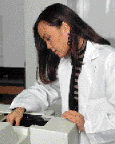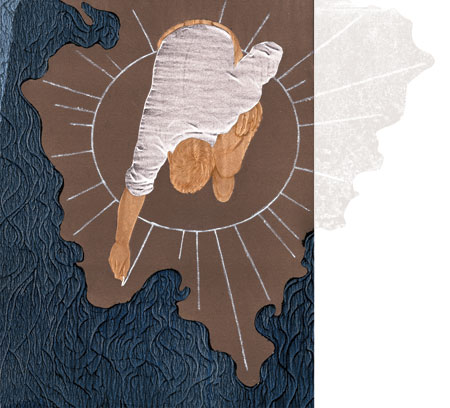Soon after President Merrill J. Bateman was named as the 11th president of BYU, Brigham Young Magazine editor Jim Bell visited with Elder L. Tom Perry of the Council of the Twelve, who chaired the search committee that recommended a new president to the Board. Following are excerpts from that discussion on how the search committee fulfilled its assignment.
How did the search committee function?
The members of the search committee were named by the Board of Trustees and consisted of three members of the Quorum of the Twelve- Elder M. Russell Ballard, Elder Henry B. Eyring, and myself–together with Elaine L. Jack, the general Relief Society president, and Merrill J. Bateman, the Presiding Bishop, whose involvement turned out to be very interesting. After we were given our instructions to find a president for Brigham Young University, we held our first meeting to set out the criteria we thought we should look for in a new president. We were united in the opinion that BYU is different from any other university. It has the charge of building faith in the gospel and achieving high academic excellence in its students. Our first requirement for the president of the university was to find a person who could provide leadership in both areas. The second requirement was to provide a strong administrator who had both an academic and business background. BYU is a big business operation and requires large financial support from the Church. The criteria were not different from those of previous search committees for each of the presidents selected to lead Brigham Young University, but maybe this time there was a little stronger emphasis on administrative experience.
How did you identify candidates?
After establishing the criteria, we made a public announcement in the Church News that we were accepting nominations. We also asked General Authorities to make recommendations. We listened to loyal friends of Brigham Young University express their views. We had interviews with many of the BYU faculty and administrators to receive input from them. Although I did not make an actual count, I believe we received somewhere between 400 to possibly as many as 600 suggestions on possible candidates and the criteria needed to fulfill that position. Many of the names were duplicates, and, of course, Bishop Bateman’s name was mentioned many times. After going through that process, we thought we had three categories
which should be looked at. The first category was the talented great people inside BYU, several of whom could have been the president. The second category was the people outside BYU who had the qualifications. We did not find many candidates in this category. We received so many suggestions to look at several General Authorities that we added this classification as a third category. We recommended these three categories, with no names attached, to the First Presidency and Quorum of the Twelve just to see if we were on the right base. During that discussion, some interesting names came up in the third category we hadn’t expected.
How did you narrow the field?
We set up appointments for the most promising candidates, both men and women, to have an interview with the Search Committee. We were narrowing the field down to just a few good candidates. We were approaching the time when we would present our final decision to the Board. Just a day or two before that final meeting, Bishop Bateman came to me and said, “I have a neighbor who just passed away, and the family has asked me to speak at her funeral. I should really be there.” Since he was on top of my personal list of candidates, I agreed to allow him to be excused from our meeting. In that last meeting, we went over the candidates in the three categories and looked at their qualifications based on the criteria we had established. Bishop Bateman just seemed to be ideal to be president of the university at this particular time, so we informed President Hinckley that we had reached our decision. He asked that we bring our recommendation forward to the Board at the next meeting. President Hinckley later called me and said, “We should check the candidate before the Board meeting to see if he is available. Maybe I had better talk with him.” After we had covered the agenda of the meeting, President Hinckley called for an executive session and asked for the search committee to make its report. We reported that the search committee recommended that Merrill J. Bateman be the next president of Brigham Young University. The Board voted, and it was unanimous.
What are your personal views on President Bateman’s qualifications?
He seems to be just right to lead the university at this particular time. BYU is uniquely different from any other university, and we want it to remain that way. Having President Bateman lead the university, I think, sends a strong message that we are different. When his name was suggested, I had a warm feeling about him because of his business experience and his outstanding academic credentials. His experience with the BYU faculty and its School of Management, his experience as a General Authority, his great faith and his willingness to serve, and his keen intellect and organizational ability make him uniquely qualified to lead this very special university. Our objective was to pick the best person to run the university at this particular time. President Bateman brings tremendous experience and insight into this position. I think you’ll continue to see Brigham Young University blossom under his special administration.









